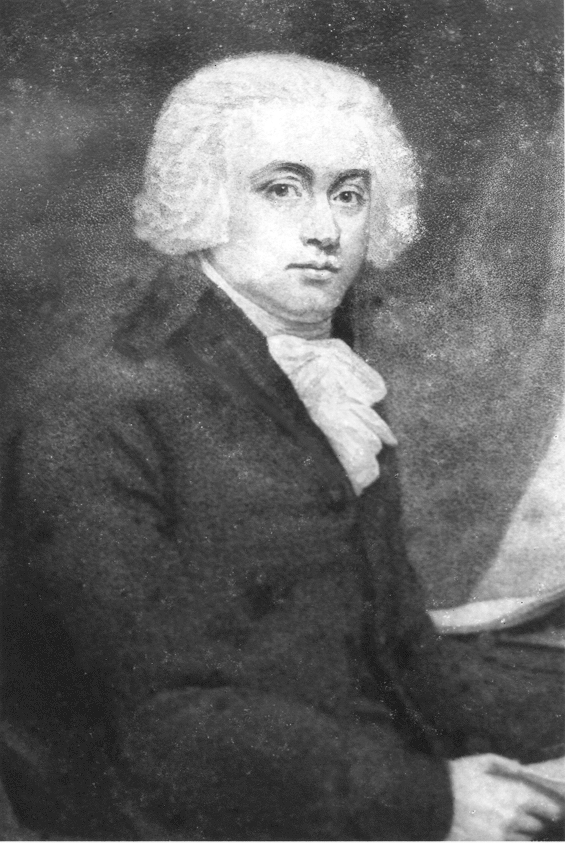Navigation: Hankeys of Churton > John Hankey > Robert Hankey > Robert Hanky > Thomas Hankey > Henry Hankey > Joseph Hankey > Joseph Hankey >
Joseph Chaplin Hankey (1754-1803)

Joseph Chaplin Hankey
Print after George Romney
Eldest son of Joseph Chaplin Hankey, Chaplin was baptised on 12 Dec 1754 at St Olave, Hart Street.
His education was overseen by Rev. Durand Rhudde, with whom he also travelled. A banker in Hankey & Co., he may have been admitted partner at about the time of his father’s death in 1773, and became head partner following the death of his cousin Thomas Hankey in 1793. Chaplin Hankey, who signed the London merchants’ declaration of loyalty on 2 Dec 1795, purchased a seat for Wareham in 1799 and became its MP from 1 Mar 1799; no record of any parliamentary activity has been found for his brief career, which ended at the dissolution of 1802.
As a young man he apparently lived at Great George Street, Westminster, before moving to King Street, Portman Square. Joseph Chaplin Hankey, wrote his second cousin Matilda, was ‘a very violent man who did everything in an ultra way, at last suddenly took an aversion to all his own family and shortly before he died turned all out & the present family completely’.
Never married, he died at Portman Square on 7 Apr 1803 and was buried on 16 Apr at St Dionis Backchurch. In his will proved on 4 May 1803, he left to his partners Stephen Hall, Robert Hankey, Augustus Robert Hankey and William Alers (sole executor) his half interest in premises in Fenchurch Street, in part of which the banking business was carried on; his estate was about £60,000.
He was the last of Sir Joseph Hankey’s descendants to be a partner in the bank.
Joseph Chaplin Hankey’s portrait, by George Romney, shows ‘a sober, bewigged eighteenth century gentleman; he chose to be represented not as the owner of a country estate, nor as head of the bank, but as a man of culture, surrounded by sheets of music. Indeed from all we know of the Hankeys, they epitomised the ideals of eighteenth century society; good sense, honesty, benevolence, public spirit, and a sense of moral duty. They were certainly not typical country gentry, living out an unruffled existence remote from the affairs of the nation, on the contrary their business concerns lay primarily in London.’